About Us
Researchers + Clinicians
Parents
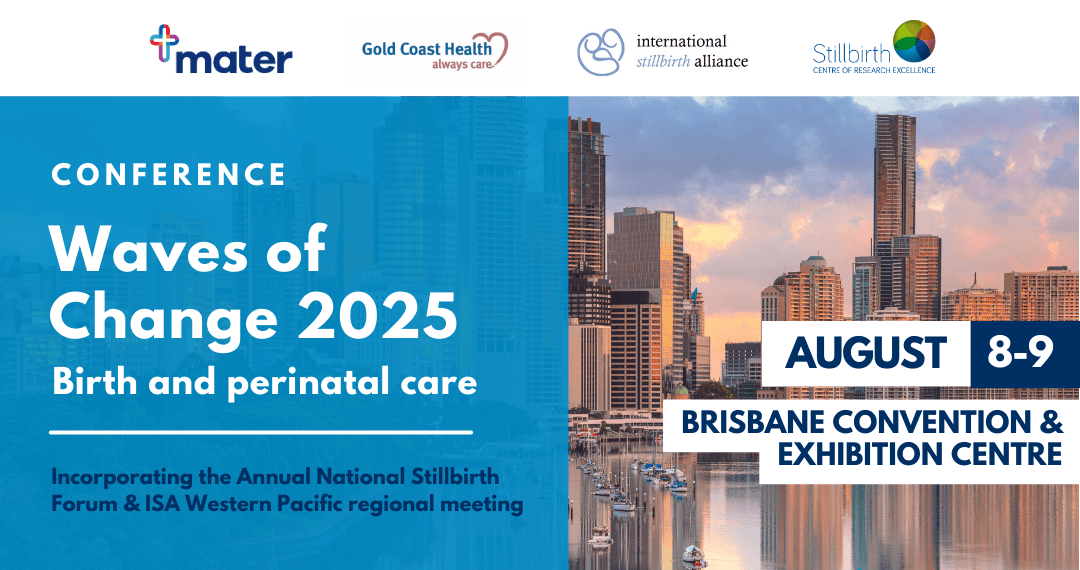
We are excited to announce that the 2025 ‘Waves of Change’ conference will take place on 8–9 August 2025 in Brisbane, Queensland. The theme of this year’s conference is ‘Birth and perinatal care’ and will combine the Stillbirth CRE’s Annual National Stillbirth forum and the QLD Maternal Fetal Medicine symposium for 2 days of learning and collaboration.
This premier conference will feature a stellar lineup of international and national multidisciplinary speakers, delivering insights into the latest advancements in birth, perinatal care, stillbirth prevention and bereavement care. This years meeting will also be the Western Pacific regional meeting for the International Stillbirth Alliance. Be at the forefront of the conversation about birth and beyond with cutting-edge topics that matter most to you and your practice.
| 08:30 – 9:00 | Registration + Welcome tea and coffee |
|---|---|
| 09:00 – 10:40 | Session 1: Current landscape of stillbirth & maternity care in Australia & globally |
| Welcome to Country Turrbal community member | |
| Welcome from Waves of Change Co-Chairs Dr Glenn Gardener and Megan Weller | |
| Official Opening | |
| Parent Story | |
| Update on the National Stillbirth Action and Implementation Plan Prof Vicki Flenady | |
| Stillbirth – UK perspectives Prof Asma Khalil | |
| Stillbirth – global perspectives A/Prof Hannah Blencowe | |
| 10:40 – 11:00 | Morning tea |
| 11:00 – 12:30 | Session 2: What does the evidence tell us? |
| The clinical tools to identify small fetuses Prof Stephen Tong | |
| Developing a strong midwifery research workforce A/Prof Zoe Bradfield | |
| Advances in prenatal genetic testing Prof Asma Khalil | |
| Panel Q&A | |
| 12:30 – 13:30 | Lunch |
| 13:30 – 15:00 | Session 3: Birth – intrapartum care |
| Vaginal Breech A/Prof Andrew Bisits | |
| Evidence based intrapartum care A/Prof Brad De Vries | |
| Introducing the role of ultrasound in intrapartum care Dr Glenn Gardener | |
| Panel Q&A | |
| 15:00 – 15:20 | Afternoon tea |
| 15:20 – 17:00 | Session 4: Birth – calming the waters |
| Homebirth – which kind of safety do we really need to talk about? Prof Hannah Dahlen | |
| Birthing in our Community Shannon Turner | |
| Healthy Yarning Guide – resource evaluation Deanna Stuart Butler | |
| Growing a Healthy Baby – resource evaluation A/Prof Miranda Davies-Tuck | |
| Safer Baby Bundle: Timing of birth resource evaluation Prof David Ellwood & Bianca Ryan | |
| Panel Q&A | |
| 17:00 – 19:00 | Join us for welcome drinks and canapes at BCEC |
| 08:00 – 09:00 | Registration + Welcome tea and coffee |
|---|---|
| 08:30 – 10:40 | Session 1: Birth – riding the waves |
| Acknowledgment of Country, Welcome from Waves of Change Co-Chairs Dr Glenn Gardener and Megan Weller | |
| Melina Connors | |
| Multiple pregnancy Prof Asma Khalil | |
| Hypoxia in labour (iSEARCH) Prof Sailesh Kumar | |
| Prediction and prevention of term pre-eclampsia Prof Fabricio Da Silva Costa | |
| The uses and abuses of aspirin Prof Stephen Tong | |
| Panel Q&A | |
| 10:40 – 11:00 | Morning tea |
| 11:00 – 12:30 | Session 2: The best of care at the worst of times |
| Caesarean scar pregnancy Dr Aparna Ramachandran | |
| Early pregnancy loss and models of care A/Prof Zoe Bradfield | |
| Launch of new resources for early pregnancy loss and subsequent pregnancies Dr Siobhan Loughnan | |
| Launch of the expanded IMPROVE program Stillbirth CRE bereavement team | |
| Panel Q&A | |
| 12:30 – 13:20 | Lunch |
| 13:20 – 15:00 | Session 3: Birth and babies |
| Tiny Baby Collaborative Dr Pita Birch + Jordan Strathearn | |
| Genomics and fetal size Prof Craig Pennell | |
| Small vulnerable newborns A/Prof Hannah Blencowe | |
| Long term neonatal outcomes related to timing of birth Prof Adrienne Gordon | |
| Panel Q&A | |
| 15:00 – 15:20 | Afternoon tea |
| 15:20 – 17:00 | Session 4: Birth and beyond |
| Birth trauma is everyone’s business Prof Hannah Dahlen | |
| The 4th trimester Dr Jo Laurie | |
| Parents and researchers walking side by side Dr Christine Andrews and Kirstin Tindal | |
| Panel Q&A | |
| Closing plenary: Pregnancy Care 2050 Prof Stephen Tong | |
| Awards and closing remarks from Waves of Change co-chairs Dr Glenn Gardener and Megan Weller |
We are proud and excited to announce the Waves of Change 2025 Brisbane Conference speakers. Featuring both internationally and nationally renowned presenters.
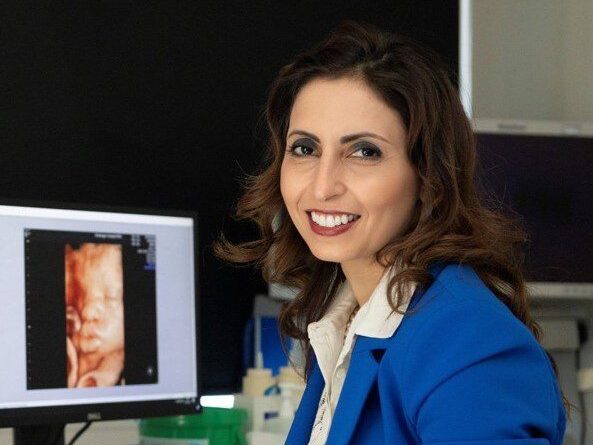
Professor Asma Khalil
Asma Khalil is a Professor of Fetal Medicine. She is the Obstetric Lead at the National Maternity and Perinatal Audit (NMPA). She gained her MD at the University of London in 2008.
Prof. Asma Khalil has published more than 500 peer-reviewed papers, and many published review articles and chapters. She was awarded many research prizes, both at national and international meetings. She was awarded the 2021 FIGO Women’s Awards: Recognising Female Obstetricians and Gynaecologists. Her research interests include twin pregnancy, congenital infections, fetal growth restriction and hypertensive disorders in pregnancy.
She had a fellowship with the National Institute of Health and Care Excellence (NICE). committed to the implementation of clinical guidelines in practice. She is the Lead author of the ISUOG guideline on the role of ultrasound in twins and congenital infections. She also led the guideline team developing the FIGO guideline on twin pregnancies. She was a member of the NICE Guideline Committee updating the Twin and Multiple Pregnancy guidance.
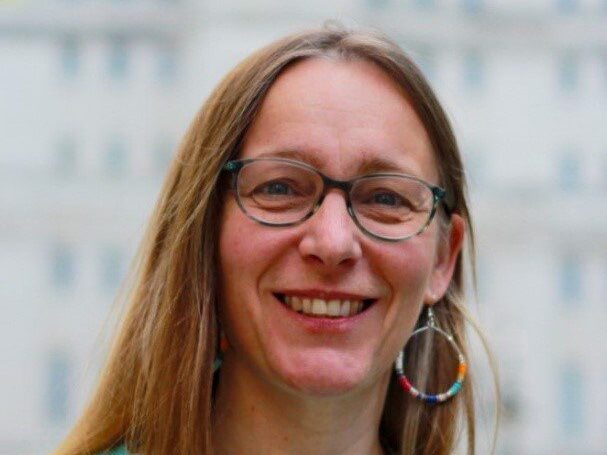
Associate Professor Hannah Blencowe
Hannah Blencowe is an Associate Professor at the London School of Hygiene and Tropical Medicine. She is a clinician and epidemiologist by training, with twenty years of experience in global health. Her research has contributed to improvements in understanding in the epidemiology and impact of stillbirth globally, through national and global rates of stillbirths (2011, 2016, 2021), the Lancet Every Newborn series (2014), Every Newborn Action Plan (2014), Lancet Ending Preventable Stillbirths series (2016) and UNICEF stillbirth reports Neglected Tragedy (2020) and Never Forgotten (2023). She contributes to ongoing UN-led work to improve perinatal data through providing country technical support and supporting further research as part of the UN-IGME Core Stillbirth Estimation Group. She also focuses on improving both understanding of the impact of stillbirth and care for women and families affected by stillbirth globally. She is deputy director of the MARCH centre at LSHTM and has co-chaired the International Stillbirth Alliance’s Global Stillbirth Advocacy Working Group since 2017, including co-leading the Parent’s Voice initiative and Global Stillbirth Advocacy and Implementation guide.
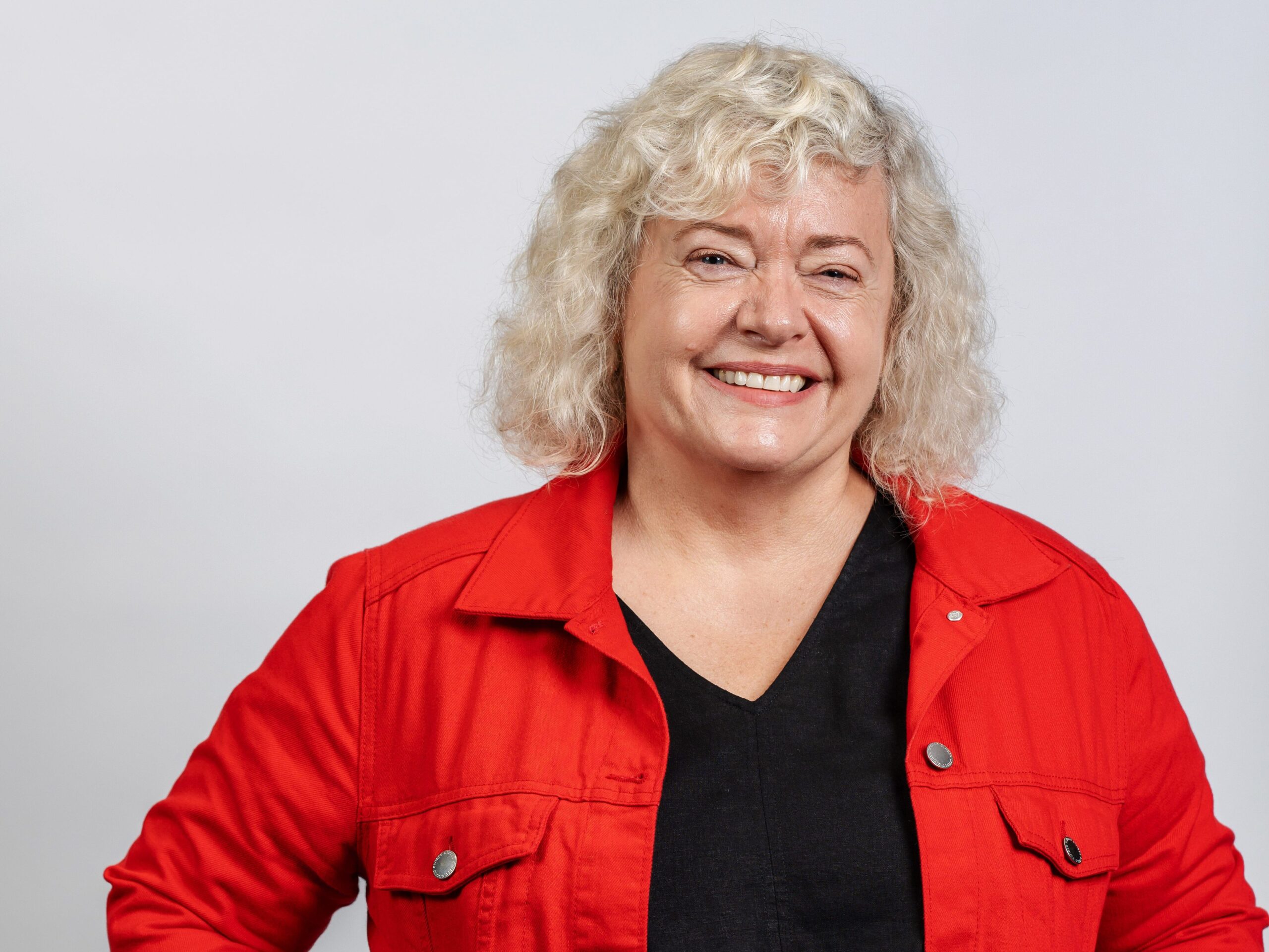
Professor Hannah Dahlen AM
Hannah Dahlen is the Professor of Midwifery and Associate Dean (Research and Higher Degree Research) in the School of Nursing and Midwifery, Western Sydney University. She has been a midwife for more than 35 years. She is one of the first midwives in Australia to gain Eligibility and access to a Medicare provider number and prescribing rights following government reforms in 2010. Hannah worked for nearly 10 years as a privately practising midwife alongside her role as a Professor of Midwifery. Hannah has published over 300 papers and book chapters and has strong national and international research partnerships. She has been in the Stanford World top 2% of scientists list for two years running.
In 2019 Hannah was awarded a Member (AM) of the Order of Australia (General Division) in the Queen’s Birthday Honours list for her significant services to midwifery, nursing and medical education and research. In November 2012 Hannah was named in the Sydney Morning Herald’s list of 100 “people who change our city for the better” and named as one of the leading “science and knowledge thinkers” for 2012.
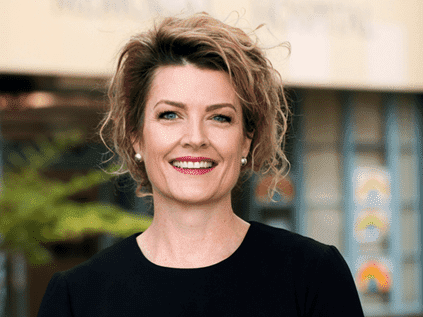
Associate Professor Zoe Bradfield
Dr Zoe Bradfield is an Associate Professor of Midwifery with a joint appointment between Curtin University and the Women and Newborn Health Service in Western Australia. Zoe also holds an adjunct at the School of Medicine at the University of Western Australia, and has an Honorary Appointment at the Burnet Institute in Victoria. Zoe has worked as a nurse and a midwife across a variety of rural and metropolitan settings for over 25 years; and as an academic for the last 11 years. Her research focuses on clinical care and health systems innovations to improve outcomes for women, their families, and society. Her translational and transformational research programs have attracted >$21M in funding and received several high-impact awards. Zoe is an NHMRC Early Leadership Fellow and is the President of the Australian College of Midwives, the peak professional body for midwifery in Australia.

Professor Stephen Tong
Professor Stephen Tong is clinician-scientist – a general obstetrician at Mercy hospital for Women and Professor at the University of Melbourne. He is co-director of Mercy Perinatal.
Stephen’s main interest is translational research: identifying new diagnostics and treatments to treat major pregnancy complications. His particular focus is finding new diagnostics to prevent stillbirth and poor neonatal outcomes; and new therapies to treat preeclampsia. He also has an interest in population health research.
He holds an NHMRC Fellowship, a Fellow of the Australian Academy of Health and Medical Science, and Chair of the Advisory Board of the Robinson Research Institute. Since 2020, he has published in many eminent journals: BMJ, Lancet, JAMA Pediatrics, JAMA Psychiatry, Nature Communications, Nature Medicine and others.
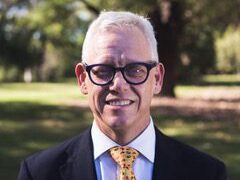
Professor Craig Pennell
Professor Craig Pennell is the Chair in Obstetrics and Gynaecology and Head of Discipline at the
University of Newcastle, and Senior Staff Specialist in Maternal Fetal Medicine (John Hunter Hospital). In addition to his subspecialty training in Maternal Fetal Medicine, he has a PhD in fetal physiology and completed postdoctoral training in molecular genetics in Toronto. Professor Pennell has managed high risk pregnancies as a subspecialist for over 20-years in Canada,
Perth and now Newcastle. His clinical work focuses on maternal fetal medicine, preterm birth
prevention and the management of pregnancy after pregnancy loss. Professor Pennell’s research is broadly encompassed by the concept of precision medicine. He applies this to both pregnancy
complications and the development of health and disease. His aim is to use targeted management to allow every woman to have a successful pregnancy and to develop ways to prevent adult disease at its earliest origin in pregnancy and the first 1000 days of life.
In addition to research, teaching and clinical medicine, he is the Foundation Scientific Director of the Newcastle 1000 Family Study (NEW1000) and is a Board Member of Red Nose.
Over his research career, he has published more than 300 papers, been cited more than 24,000 times and been awarded more than $33M in competitive research grants.
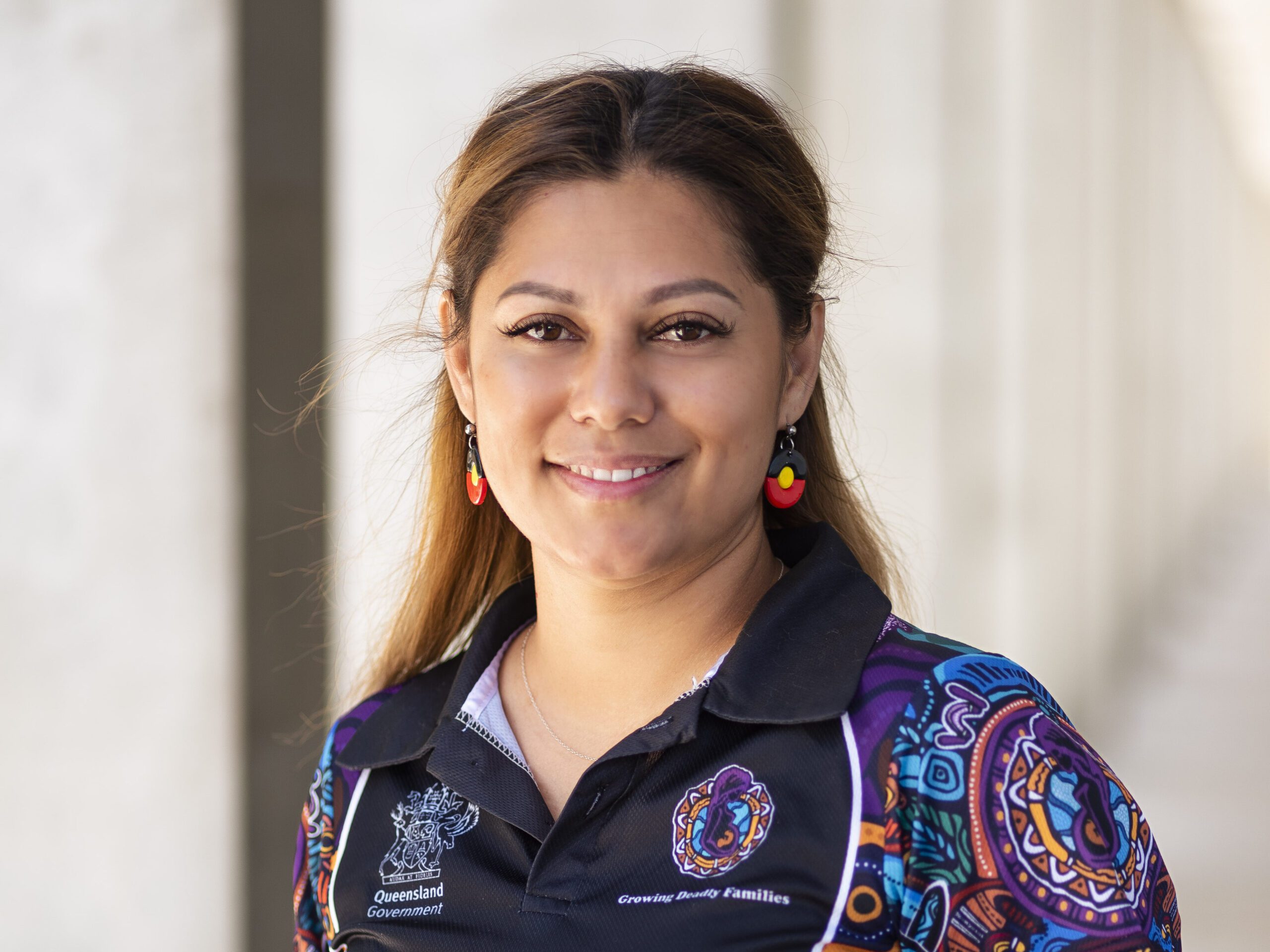
Melina Connors
Melina is a proud Gurindji woman, mother to three daughters and Mimi to three grandchildren. Melina is Queensland’s Inaugural First Nations Midwifery Director within Queensland Health’s Office of Chief Midwife Officer. Melina’s journey into midwifery came following her maternity experience, which lacked the cultural consideration she needed, which in turn set her on a pathway to change this for women moving forward. Melina has held the role of the Inaugural First Nations Midwifery Director at Queensland Health since early in 2024.
Melina is committed and extremely passionate about the development of best practice when partnering with Aboriginal and Torres Strait Islander women and families. With a vision to create culturally safe maternity experiences for all Aboriginal and Torres Strait Islander women and families by ensuring women and their communities feel supported by culturally capable staff and by growing the First Nations Midwifery workforce. Melina oversees the coordination and ongoing implementation, governance, and expansion of the Growing Deadly Families Strategy – which is the first ‘First Nations Maternity Strategy’ in Queensland. Melina ensures Aboriginal and Torres Strait Islander ways of ‘Knowing, Being and Doing’ are embedded in all maternity services for First Nations women in Queensland.
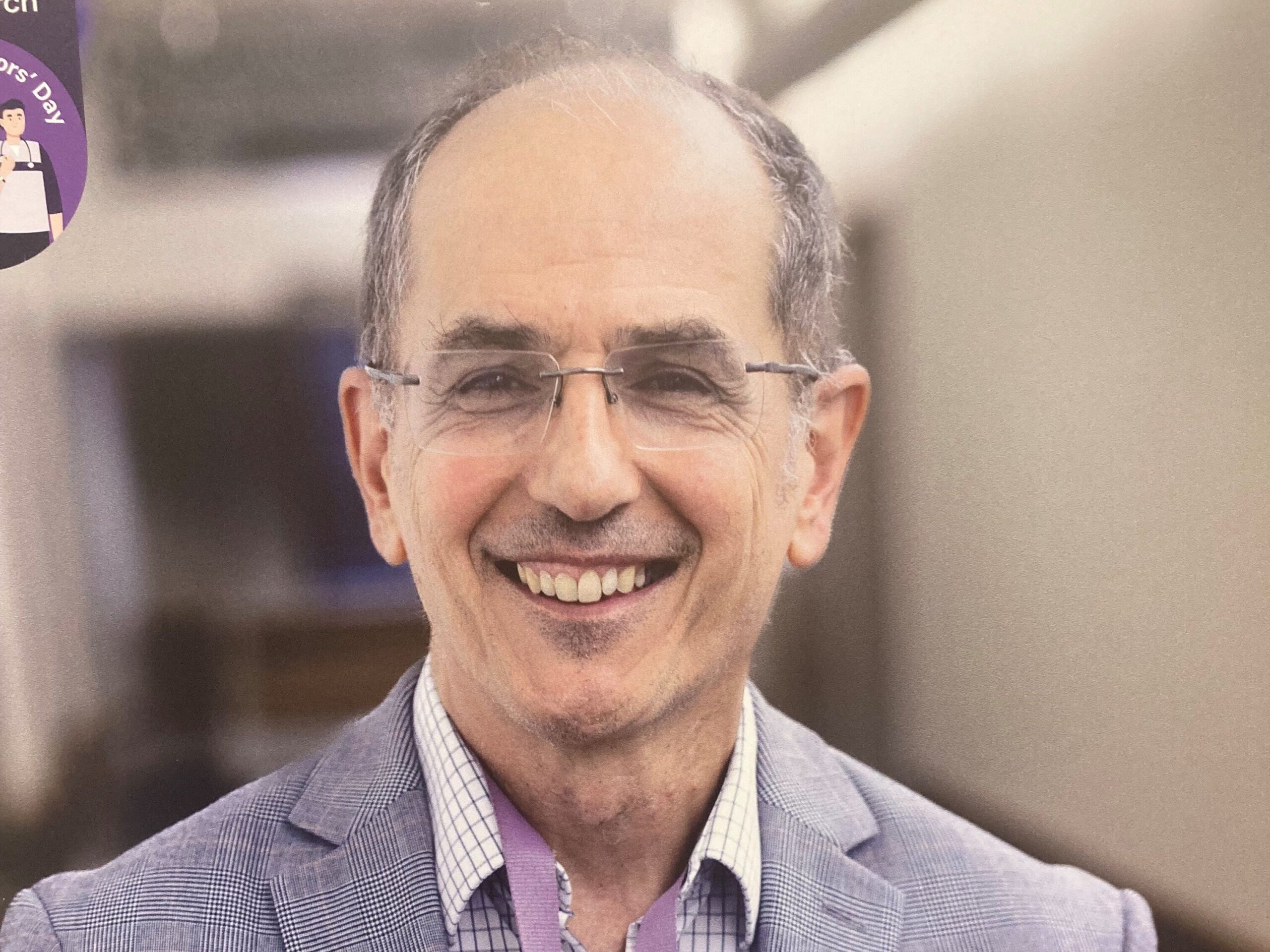
Dr Andrew Bisits
Dr Andrew Bisits was the Medical Co Director of Maternity at the Royal Hospital for Women 2012-2025, Sydney, Australia- a tertiary academic hospital which oversees 3300 births per year. He moved there from Newcastle, 150km north of Sydney, four years ago. In Newcastle he had been the director of Obstetrics for eight years. Currently he is having a rest and pursuing various teaching and research interests.
Dr Bisits has been in full time obstetrics for 40 years this time including the training and residency positions. He has had a long clinical and research interest in vaginal breech birth since the term breech trial was first planned. In the research arena he has a strong leaning towards epidemiology and biostatistics and preterm birth.
In the clinical arena he has participated in several initiatives to promote and establish primary midwifery care programs for pregnant women. Dr Bisits has had conjoint associate professorial position with the UNSW and University of Newcastle. He was a previous chair of the Advanced Maternal and Reproductive Education group which runs maternity care courses on emergencies , maternity care basics and a breech course.

Professor Vicki Flenady AM
Prof. Flenady is the Co-Director of the Australian National Health and Medical Research Council (NHMRC) Centre of Research Excellence in Stillbirth. Vicki’s research focusses on collaborative programs in Australia and globally to effectively reduce the numbers of babies who are stillborn and to improve care for families who experience this loss.

Professor Sailesh Kumar
Professor Kumar is a Maternal Fetal Medicine Specialist and Mayne Professor and Head of the Academy of Obstetrics and Gynaecology at The University of Queensland. Prof. Kumar’s research interests are in complex pregnancies and fetal therapy with a particular focus on complications related to placental dysfunction. He heads the Genesis Maternal Fetal Research Group at the Mater Research Institute-University of Queensland.

Professor Fabricio Costa
Prof Costa is a Consultant at the Maternal Fetal Medicine Unit, Gold Coast University Hospital and Professor of Obstetrics and Gynaecology at Griffith University. Fabricio’s integrated program of perinatal research spans laboratory-based discovery research, clinical trials, implementation science, and health policy.

Professor Adrienne Gordon
Prof Gordon is a Senior Staff Specialist Neonatologist in the RPA Centre for Newborn Care, Clinical Professor at the University of Sydney and Chief Investigator on the Stillbirth Centre of Research Excellence. She is President-Elect of the Perinatal Society of Australia and New Zealand, Co-Chair of the IMPACT Network (Improving Maternal and Perinatal Outcomes – Action through Clinical Trials) and a Board Member of the International Stillbirth Alliance. She has strong links with National parent led organisations and is Deputy Chair of the National RedNose scientific advisory group. Adrienne is a key member of the Safer Baby Bundle initiative and leads the MRFF funded PreBabe Trial which aims to improve pregnancy and newborn outcomes for women with overweight or obesity. She founded the award winning Sydney local health district iSAIL (integrated support after infant loss) service.

Dr Glenn Gardener
Dr Glenn Gardener is the Director of Maternal, Fetal and Obstetric Medicine at Mater Mothers Hospital, South Brisbane, MFM VMO to Townsville and Gold Coast University Hospitals and RANZCOG CMFM training supervisor and examiner. He is also a Senior Research Fellow with Mater Research, University of Qld. Having completing his medical training at the University of Qld, he pursued a career in Obstetrics and Gynaecology, subspecialising in Maternal Fetal Medicine and undertaking a 2-year fellowship at University College London, United Kingdom. He returned to Brisbane as Consultant in Maternal Fetal Medicine and in 2007 he was appointed Director of the service. He has authored 87 peer reviewed publications and 5 book chapters. His research interests include prenatal diagnosis, fetal therapy, fetal growth restriction, ultrasound in obstetrics, telehealth and the investigation and prevention of stillbirth.
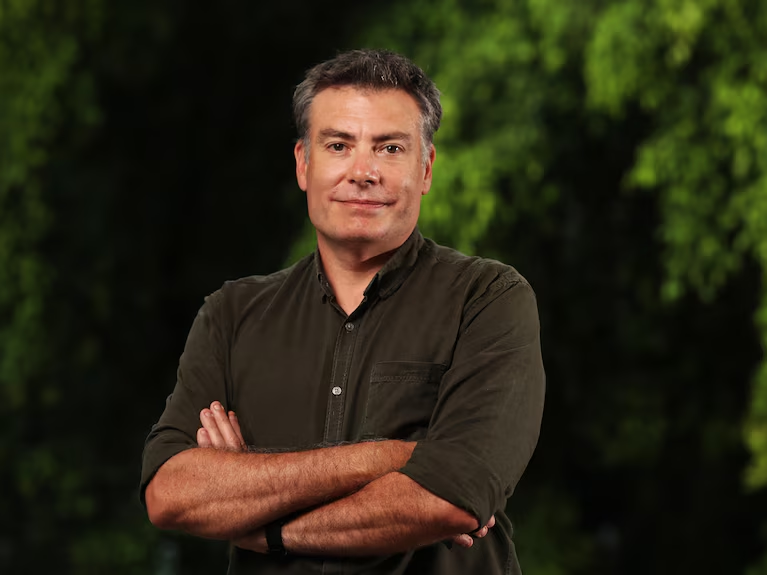
Dr Pita Birch
Dr Pita Birch is the Director of Neonatology at Mater and a neonatologist with over 15 years of consultant experience, 14 years in Queensland. Dr Birch trained in neonatology New Zealand at the Royal Women’s Hospital in Melbourne and has worked as a neonatologist in Melbourne, Auckland and the Gold Coast before moving to Mater in Brisbane in March 2018. Dr Birch is trained in point of care ultrasound and has clinical interests in haemodynamic management, particularly in extremely preterm infants, as well as the respiratory management of term and preterm infants. He has research interests in infection prevention, respiratory management for the prevention of chronic neonatal lung disease and neonatal nutrition. In his time as director at the Mater, Dr Birch has championed quality improvement and has been part of the leadership team that has initiated the Tiny Baby project.

Associate Professor Jo Laurie
A/Prof Jo Laurie is Director of Obstetric Medicine at The Mater Mothers’ Hospital and provides both public and private patients with preconception, antenatal, intrapartum and post-natal care. Jo specialises in the coordination of the multidisciplinary management of women with severe and complex medical disorders. Her current research interest includes holistic care of high-risk women and addressing the longer term cardiovascular and metabolic morbidity and mortality experienced by women after pregnancy with medical complexity.

Professor David Ellwood AO
Prof. Ellwood is Professor of Obstetrics & Gynaecology at Griffith University, Queensland and Director of the Maternal-Fetal Medicine Unit at Gold Coast University Hospital. He is a senior clinician researcher with over 200 publications, multiple competitive research grants, and successful HDR completions. His research interests span a range of adverse outcomes of pregnancy but particularly include maternal and perinatal death. He is the co-Director of the NHMRC Centre of Research Excellence in Stillbirth (the Stillbirth CRE) and has co-authored many articles on this topic.
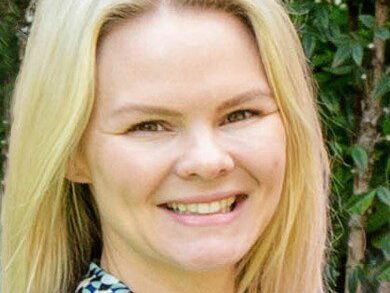
Bianca Ryan
Bianca is a Registered Midwife with a diverse background in clinical practice and research. She has extensive experience providing midwifery care to women and their families in various models of care. Dedicated to continuity of care, Bianca has worked closely with Aboriginal and Torres Strait Islander women, supporting them throughout the antenatal, intrapartum, and postnatal periods. Recently, Bianca contributed to an Australian-first randomised controlled trial using Sildenafil during labour, aimed at reducing fetal distress and improving birth outcomes for mothers and babies. Since joining the Stillbirth CRE, Bianca has been leading the Timing of Birth Pilot Study. Through her clinical and research roles, she is dedicated to advancing midwifery practice and making a positive impact on the lives of women and their families.

Associate Professor Miranda Davies-Tuck
A/Professor Miranda Davies-Tuck is the Head of Epidemiology and Clinical Trials, Hudson Institute of Medical Research. She is also a Chief Investigator on the Stillbirth Centre of Research Excellence where she co-leads the Stillbirth CRE’s Equity Program. Miranda is also the current President of the Perinatal Society of Australia and New Zealand (PSANZ) and executive member of the PSANZ Interdisciplinary Maternal Perinatal Australasian Collaborative Trials (IMPACT) Network. Miranda leads dynamic and collaborative research program that spans the entire translational pipeline, including discovery science, epidemiology, randomised controlled trials, evidence synthesis, implementation, and evaluation. Her work seeks to transform care, mitigating adverse events in pregnancy and guaranteeing equitable outcomes for every mother and her baby, irrespective of her background.
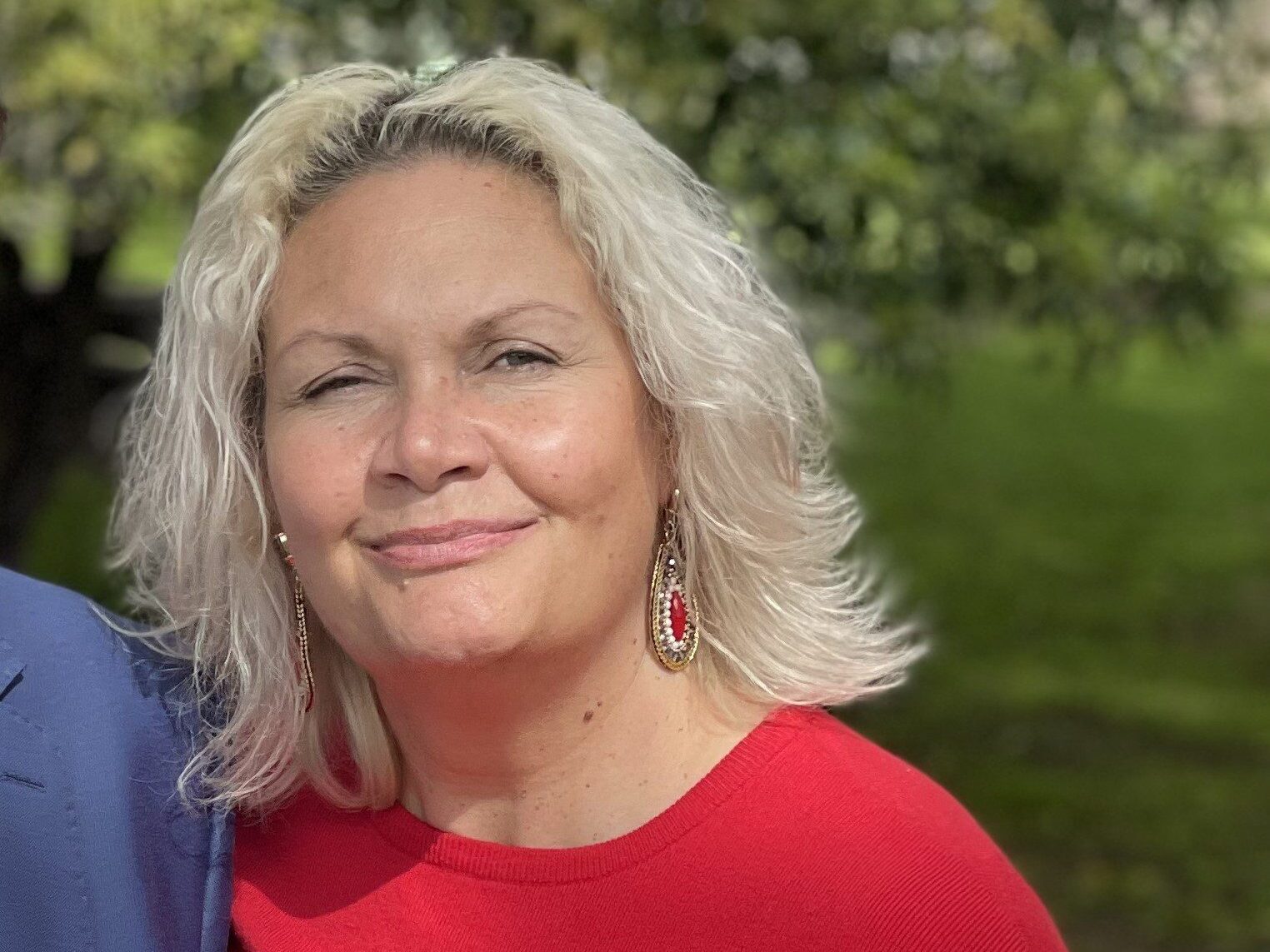
Deanna Stuart-Butler
Deanna Stuart-Butler is a key figure in Indigenous health research, focusing on stillbirth. She leads Indigenous initiatives within the Stillbirth CRE providing strategic direction and advocacy. She believes Indigenous people’s diversity, equity and inclusion requires going beyond intervention to systemic change.

Dr Christine Andrews
Dr Andrews is a postdoctoral perinatal implementation science researcher with the Stillbirth CRE. Christine’s research focuses on implementation and evaluation of stillbirth prevention strategies across maternity settings in Australia through the Safer Baby Bundle (SBB). Christine is also an emerging leader for consumer involvement in research and leads a national project to enhance bereaved parents’ engagement in stillbirth research in partnership with the Stillbirth Foundation Australia.

Dr Siobhan Loughnan
Siobhan is an early career researcher and co-leads the Care Around Stillbirth and Neonatal Death program. Siobhan joined the Stillbirth CRE in 2019 and has a background in perinatal loss, perinatal psychology, digital interventions for mental health and wellbeing, and psychosocial cancer care. Siobhan currently leads a range of projects including the technical working group for the update of the Care Around Stillbirth and Neonatal Death Clinical Practice Guideline; enhancing and expanding the IMPROVE education program; development and evaluation of the Living with Loss online grief support program for parents following perinatal loss; a global collaboration to explore the impact of the COVID-19 pandemic on parent experiences of maternity and bereavement care (COCOON); evaluating care in subsequent pregnancies to meet the needs of parents; and development of a digital resource to support the mental health and wellbeing of healthcare professionals caring for parents who experience perinatal loss.

Level 3, Aubigny Place
Mater Research Institute
Raymond Terrace,
South Brisbane QLD 4101
The University of Queensland Faculty of Medicine